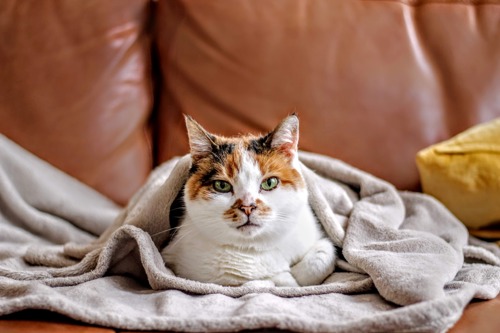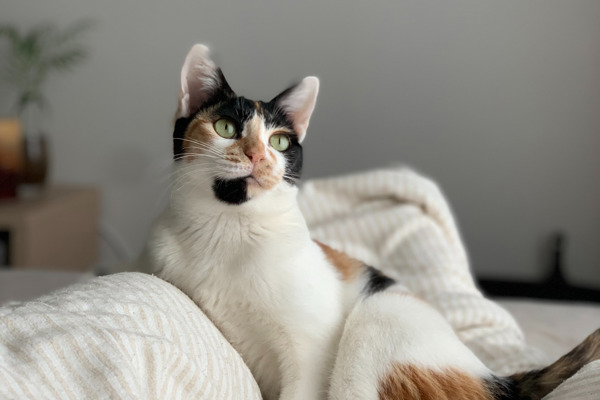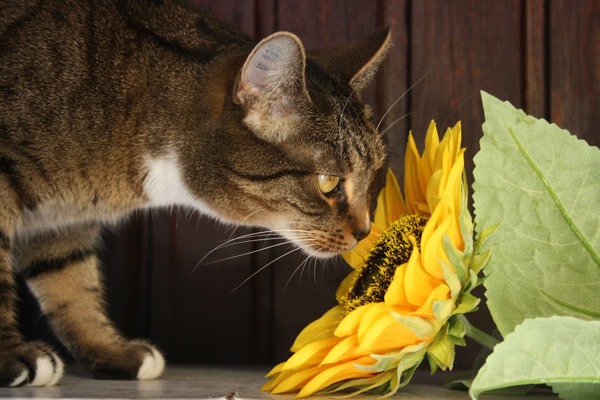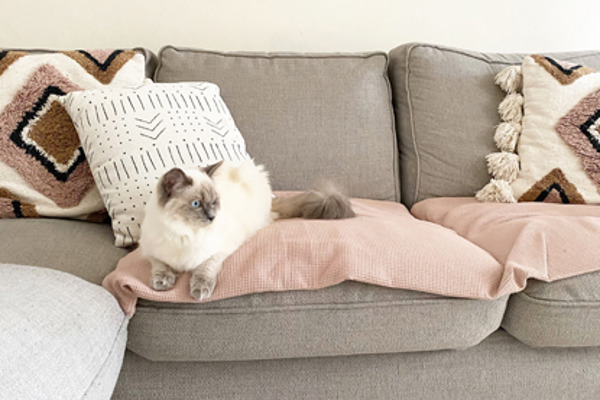Burning candles or wax melts at home can pose some dangers to your cat so read our guide to pet-safe candles to limit the risks to your feline friend
Lighting candles or using wax melts at home is a great way to create a calming atmosphere and make the room smell lovely, but these staples of home décor do come with some risks for cat owners. As well as being a potential fire hazard, the fumes they give off can also be harmful to cats, so some care needs to be taken if you have any candles at home.

How to keep your cat safe around candles
Supervise your cat
A big risk with burning candles when you have a cat around is that they could get too close and burn themselves or knock them over and cause a fire. Cats love to jump up on surfaces and sometimes knock things off them, so make sure you never leave a lit candle unattended. For extra safety use heavy, sturdy candles that are less likely to topple over, or try placing the candle inside a tray of water, so that if it does get knocked over, the flame will go out straight away.
Ventilate the room

Cats are very sensitive to strong smells, so they may avoid rooms where scented candles are burning anyway. However, if your cat is nearby, make sure the room is well ventilated so that the smell and fumes do not cause any issues. If your cat has a medical condition such as asthma or chronic bronchitis then extra care should be taken.
Choose candles wisely
Some scented candles are made from paraffin wax, which is derived from petroleum and can release toxic compounds into the air when burnt. The fumes released can be harmful to you as well as your pets, although the level of risk is low if you’re only lighting candles occasionally in a well-ventilated room. Not all candles release these chemicals though, so check the ingredients before you buy. Beeswax, soy wax or vegetable-based wax candles don’t contain toxic pollutants, so are generally safer, and also typically burn for longer than paraffin wax.
If you’re worried your cat may have been poisoned by anything in your home, discover how to spot the signs of poisoning. If you notice any change in your cat’s health or behaviour then speak to your vet for advice.



